One wrote a stirring poem for a U.S. president’s inauguration, and three have served as president—of our nation’s oldest university, Latin America’s largest country, and America’s largest public media enterprise. Three others have left indelible marks on legal justice, global health, and the way the world conducts business, and stays connected.
Seven extraordinary men and women who have made significant contributions in their fields and to the greater good will share their wisdom with 4,000 University of Miami students who will graduate during seven commencement ceremonies taking place over three days, May 9-11, at the Watsco Center on the Coral Gables campus.
The speakers and the dates and times of their ceremonies are:
Drew Gilpin Faust at the Graduate Degree Ceremony for the College of Arts and Sciences, College of Engineering, Rosenstiel School of Marine and Atmospheric Science, Miller School of Medicine, and School of Nursing and Health Studies at 10 a.m. on Thursday, May 9
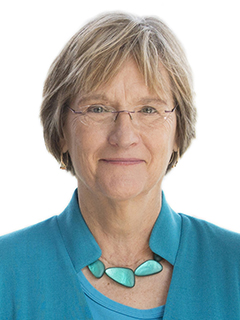 Drew Gilpin Faust was the 28thpresident of Harvard University, and the first woman to lead the 383-year-old institution, a position she reached not only through her impressive scholarship, leadership, and administrative abilities, but her drive to knock down both gender and racial barriers.
Drew Gilpin Faust was the 28thpresident of Harvard University, and the first woman to lead the 383-year-old institution, a position she reached not only through her impressive scholarship, leadership, and administrative abilities, but her drive to knock down both gender and racial barriers.
Growing up in the 1950s in a privileged tradition-bound family in rural Virginia, she spent much of her formative years rebelling against the restrictions imposed on what she, but not her three brothers, could do or be, and the even worse injustices African-Americans endured.
Her February 2007 appointment to Harvard capped an already distinguished career as an accomplished historian and scholar of the Civil War and the South, an award-winning author of six books, and an admired educator and administrator who, after 25 years at her alma mater, the University of Pennsylvania, served as founding dean of Harvard’s Radcliffe Institute for Advanced Study.
During her 11-year tenure as Harvard’s president, Faust guided the institution through significant financial challenges, and improved access for students of all economic backgrounds, promoted diversity and inclusion, raised the profile of the arts, launching edX, the online learning partnership with MIT, and promoted collaboration across academic disciplines and administrative units.
A member of the American Academy of Arts and Sciences, the Society of American Historians, and the American Philosophical Society, Faust was awarded the Library of Congress’ John W. Kluge Prize for Achievement in the Study of Humanity last year for her exploration of “themes of deep relevance to our national conversation on race and gender.”
Fernando Henrique Cardoso at the Graduate Degree Ceremony for the School of Architecture, Business School, School of Communication, School of Education and Human Development, and Frost School of Music at 3 p.m. on Thursday, May 9
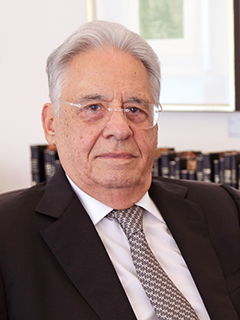
A professor, researcher, and sociologist at heart, Fernando Henrique Cardoso served as Brazil’s 34thpresident from 1995-2002, when he ushered in a new era of reforms aimed largely at closing the chasm between Brazil’s rich and poor.
The son and grandson of military generals, FHC, as he is widely known, initially pursued a career in academia, earning a doctorate in sociology in 1961 from the University of Sao Paulo and exploring such issues as slavery, social change, development, and democracy. But persecuted after Brazil’s 1964 military coup for his efforts to improve public education, he went into exile, coauthoring the classic book, “Dependency and Development in Latin America.”
Returning to Brazil in 1968, FHC forged his reputation as one of Brazil’s leading thinkers and foremost members of the left-wing opposition. A decade later, he began his political career in the senate, pushing for changes that paved the way for Brazil’s return to democracy.
As Brazil’s minister of finance in 1993, he stabilized the hyperinflated economy, implementing debt reforms, monetary controls, and a new currency that eventually lifted millions of Brazilians out of poverty and set the stage for his two presidential terms that were so successful at improving the quality of life in Brazil the United Nations awarded him its first Mahbub ul Haq Award for Outstanding Contributions to Human Development.
A former president of the International Sociological Association who speaks four languages, Cardoso has taught at Brown, Princeton, the University of California, and in Paris and Cambridge.
Richard Blanco at the Undergraduate Degree Ceremony for the College of Arts and Sciences at 8:30 a.m. on Friday, May 10
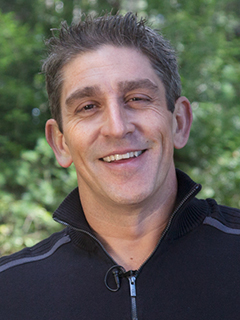 A poet, essayist, memoirist, and civil engineer, Richard Blanco first appeared on the national stage on Jan. 21, 2013, when he recited “One Today,” the powerful poem he wrote for President Barack Obama’s second inauguration.
A poet, essayist, memoirist, and civil engineer, Richard Blanco first appeared on the national stage on Jan. 21, 2013, when he recited “One Today,” the powerful poem he wrote for President Barack Obama’s second inauguration.
As Obama wrote in announcing Blanco as the first Latino, the first immigrant, and the first openly gay person to serve as an inauguration poet, “Blanco’s contributions to the fields of poetry and the arts have already paved the path forward for future generations of writers. Richard’s writing will be wonderfully fitting for an inaugural that will celebrate the strength of the American people and our nation’s great diversity.”
An outspoken activist for diversity, LGBTQ rights, immigration, arts education, and other sociopolitical issues, Blanco has long explored the boundaries of race, gender, class, and ethnicity that divide society—explorations prompted by his search for unity and answers about his cultural identity and personal history.
As he likes to say, he was “made in Cuba, assembled in Spain and imported to the U.S.” That’s because he was conceived in Cuba, but born in Madrid, where his family stayed very briefly before settling in Miami.
Now an associate professor of English at Florida International University, where he earned his initial degree in civil engineering—a profession he practiced for a while—Blanco is the author of a dozen books of poetry and prose. Since the inauguration, he has been named a Woodrow Wilson Visiting Fellow and the Academy of American Poets’ first education ambassador.
Pat Mitchell at the Undergraduate Degree Ceremony for the School of Architecture, School of Communication, School of Education and Human Development, Rosenstiel School of Marine and Atmospheric Science, Frost School of Music, and School of Nursing and Health Studies at 1 p.m. on Friday, May 10
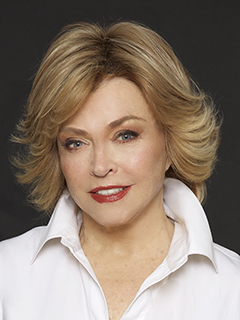
The first woman to serve as president of the Public Broadcasting Service, journalist and producer Pat Mitchell was just a girl when television sets began trickling into stores in her rural Georgia town. Worried about their effect on his daughter, her father, an appliance salesman, refused to bring one home.
Yet Mitchell would see the power of television to influence culture, open minds, and shape opinion, and throughout her four-decade career as a pioneering journalist, producer, and executive, she leveraged its potential for positive change—especially in behalf of women.
She was among the first women to report and anchor the news and produce and host a national program for women, and her “A Century of Women” series that aired on CNN was syndicated around the world, launching her eight years as president of CNN Productions. In that role, she was the executive producer for hundreds of hours of programming that netted 35 Emmy Awards, five Peabody Awards, and two Academy Award nominations.
In 2000, Mitchell left CNN for PBS, where, working with 344 local public television stations, she led the fight to sustain government funds for the country’s only public service media and added new programming to its schedule.
In 2011, she partnered with the TED organization to launch, curate, and host TEDWomen, the annual global conference focused on the ideas and innovations of women, and she chairs the Sundance Institute, which nurtures independent artists and produces the Sundance Film Festival. The recipient of The Women’s Media Center first Lifetime Achievement Award, Mitchell continues to advise foundations and corporations on women’s empowerment, leadership development, media relations, and governance.
Frederick W. Smith at the Undergraduate Degree Ceremony for the Business School and the College of Engineering at 5:30 p.m. on Friday, May 10
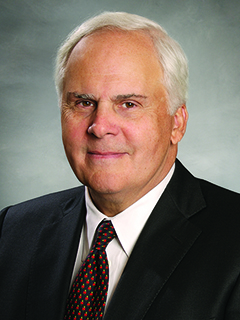
As a student at Yale University in the early 1960s, Frederick W. Smith conceived his idea for a company that would guarantee overnight delivery of time-sensitive goods. Though his term paper on the subject earned him only an average grade, the core concept became the basis for the global transportation and logistics giant we know as FedEx.
Now a $69 billion enterprise that delivers more than 14.5 million packages around the world each day, the company that Smith founded in 1971 would change the way the world does business.
During Smith’s more than 45 years at the company’s helm, FedEx has delivered it all—from a collection of 3,000-year-old King Tut artifacts transported from Los Angeles to Paris to a 3,000-pound piece of the Titanic’s hull shipped from Milan, Italy, to Atlanta, Georgia. And since FedEx networks span the globe, the company works with organizations to provide relief after such disasters as earthquakes, floods, storms, and wildfires.
After graduating from Yale with a bachelor’s degree in economics in 1966, he joined the U.S. Marine Corps, and, during two tours of duty in Vietnam, he carefully observed military logistics, which had a big influence on the way he eventually structured FedEx operations.
Two years after he founded what was then called Federal Express, the company began operations, delivering to 25 cities with a fleet of 14 Dassault Falcon jets. The first night’s haul: 186 packages. Today its 450,000 team members, nearly 700 aircraft, and 180,000 vehicles deliver shipments to more than 220 countries and territories, and FedEx has repeatedly been recognized as one of the best companies to work for, not just in the U.S., but around the world.
Named a top CEO by both Barron’s and Chief Executive magazines, he has been inducted into the Aviation Hall of Fame and the Business Hall of Fame.
Roy Black, B.A. ’67, J.D. ’70, at the School of Law Ceremony at 10 a.m. on Saturday, May 11
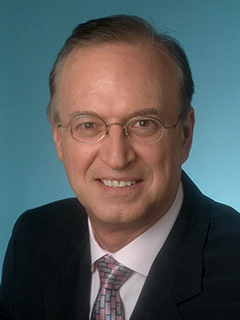
A proud double ’Cane, adjunct professor, and senior partner of Black, Srebnick, Kornspan & Stumpf, P.A. in Miami, Roy Black is routinely recognized as one of the nation’s premier trial lawyers.
After graduating from Miami Law in 1970, he spent five years at the Dade County Public Defender’s Office, where he honed his renowned trial skills. Every year since 1987, his peers have selected him for inclusion in The Best Lawyers in America, a widely used guide to the nation’s top legal talent. An internationally prestigious legal guide, Chambers and Partners, also has recognized Black as a top criminal defense attorney with the “the best national reputation” in Florida.
Perhaps best known for his successful 1991 defense of William Kennedy Smith in West Palm Beach, he has defended scores of high-profile clients, including three-time Indy 500 winner and “Dancing With the Stars” champion Helio Castroneves for income tax evasion trial and BuzzFeed, against a libel suit brought by a Russian entrepreneur who claimed he was defamed by its publication of the so-called Steele Dossier on President Trump’s alleged ties to Russia.
Other well-known clients have included Rush Limbaugh, Kelsey Grammar, Justin Bieber, and Miami police officers Luis Alvarez and William Lozano.
For several years, Black also served as NBC’s legal analyst on the “Today” show and has frequently appeared as a commentator and legal analyst on ABC’s “Good Morning America,” and other national news programs. The author of “Black’s Law,” he continues to teach advanced criminal law at his alma mater, which he began doing 46 years ago, fresh out of law school.
Sir George Alleyne at the Miller School of Medicine’s Ceremony at 3 p.m. on Saturday, May 11
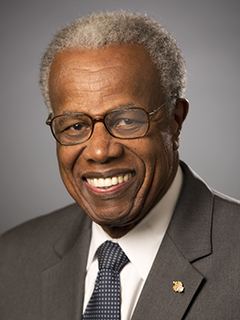
As chancellor of the University of the West Indies, director of the Pan American Health Organization, and a United Nations special envoy for HIV/AIDS in the Caribbean, George Alleyne has devoted his life to reducing disease, poverty, and infant mortality, making it possible for countless families across the region to enjoy healthier, safer lives.
Growing up in Barbados, he was surrounded by social degradation, rampant health problems, and a dearth of health and educational services, an environment that he says sowed the seeds for his social conscience and propelled him to study medicine.
But Alleyne wasn’t just a compassionate physician, but a deep thinker with keen political instincts. He is credited with pushing the growing incidence of noncommunicable diseases to the world agenda, an effort which culminated with the United Nations holding a summit on the subject in 2011.
Alleyne also was a member of the independent commission that produced the 2013 report “Global health 2035: a world converging within a generation.” Published in The Lancet, it focused on how low- and middle-income countries and their development partners should target future investments to tackle such challenges as infectious and noncommunicable diseases, injuries, and emerging threats such as antimicrobial resistance, new pandemics, and global climate change.
Over his lifetime, Alleyne has received numerous honors for his work. In 1990, Queen Elizabeth II anointed him Knight Bachelor for his service to medicine and in 2001 he was awarded the Order of the Caribbean Community, the highest honor conferred on a Caribbean national.

